
Napguard D 500mg/10mg Tablet
Manufacturer
Cardimind Pharmaceuticals
Salt Composition
Naproxen (500mg) + Domperidone (10mg)
Key Information
Short Description
Napguard D 500mg/10mg Tablet is a combination of two medicines used in the prevention of migraines. It blocks the release of certain chemical messengers that cause pain, inflammation, and fever.
Dosage Form
Tablet
Introduction
Napguard D 500mg/10mg Tablet may be prescribed alone or in combination with another medicine. It can be taken with or without food. The dose and duration will depend on the severity of your condition and how well it helps your symptoms. Use it regularly and do not discontinue using it until the doctor tells you it is alright to stop.
Directions for Use
Take this medicine in the dose and duration as advised by your doctor. Swallow it as a whole. Do not chew, crush or break it. Napguard D 500mg/10mg Tablet may be taken with or without food but it is better to take it at a fixed time.
How it works
Napguard D 500mg/10mg Tablet is a combination of two medicines: Naproxen and Domperidone. Naproxen is a non-steroidal anti-inflammatory drug (NSAID) which works by blocking the release of certain chemical messengers that cause pain due to migraine. Domperidone is a prokinetic which works on the region in the brain that controls vomiting associated with migraine. It also increases the movement of the stomach and intestines allowing food to move more easily through the stomach.
Quick Tips
Have your meals at the same time everyday Avoid bright lights and extreme temperatures Avoid loud music and noisy places Avoid chocolates, cheese, processed food, alcohol and smoking Get enough sleep and avoid stress
Related Medicines
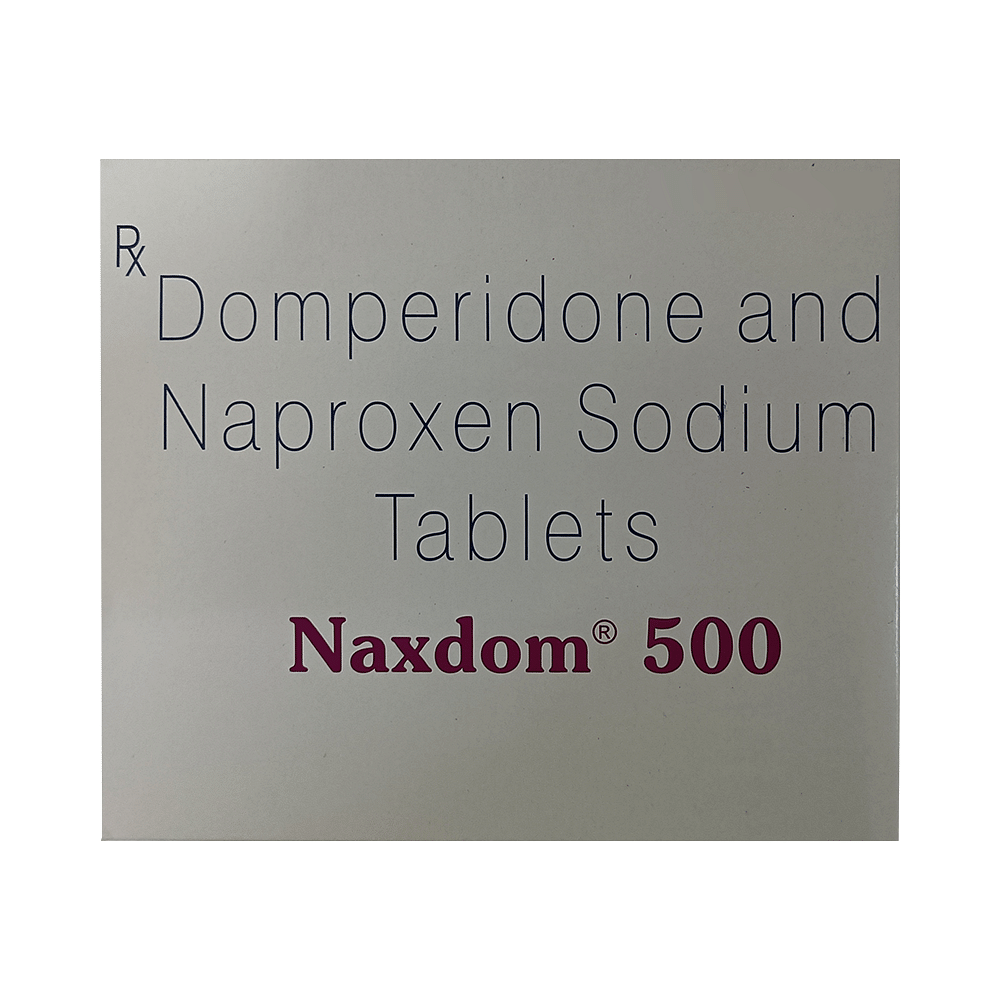
Naxdom 500 Tablet
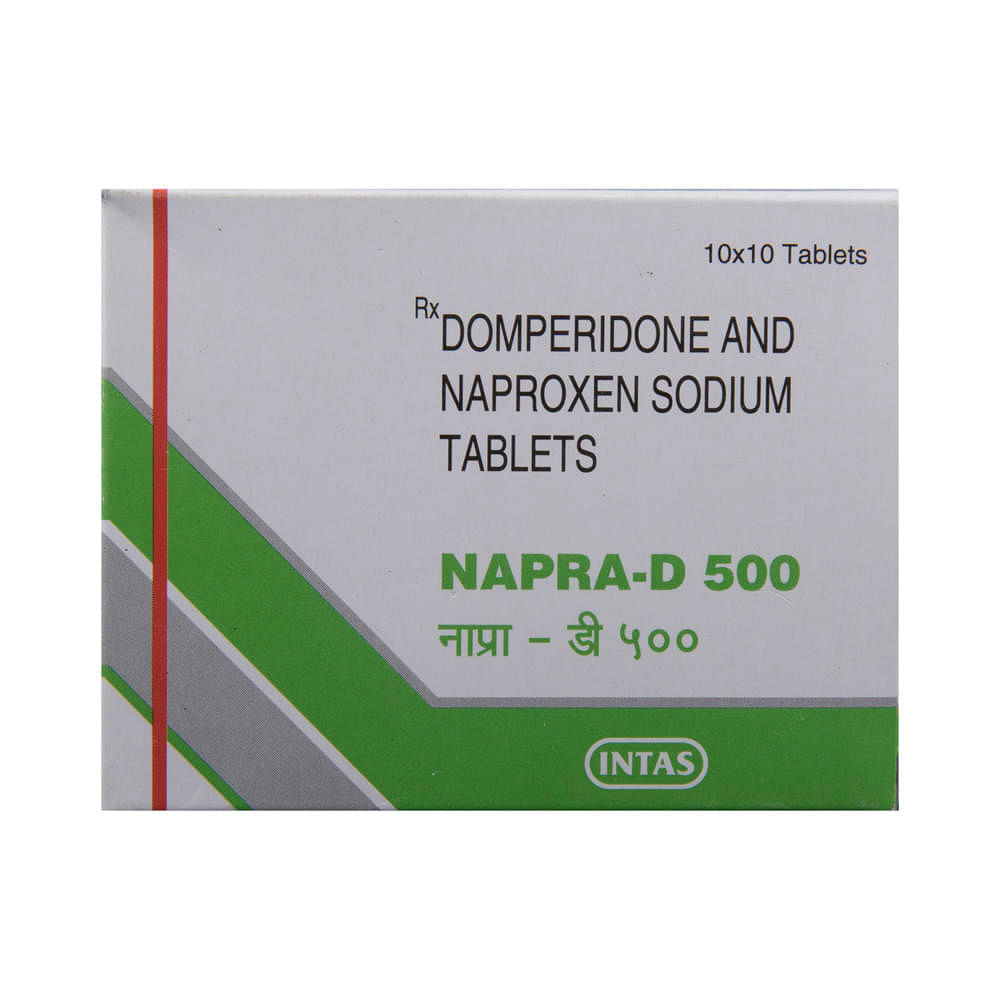
Napra-D 500 Tablet
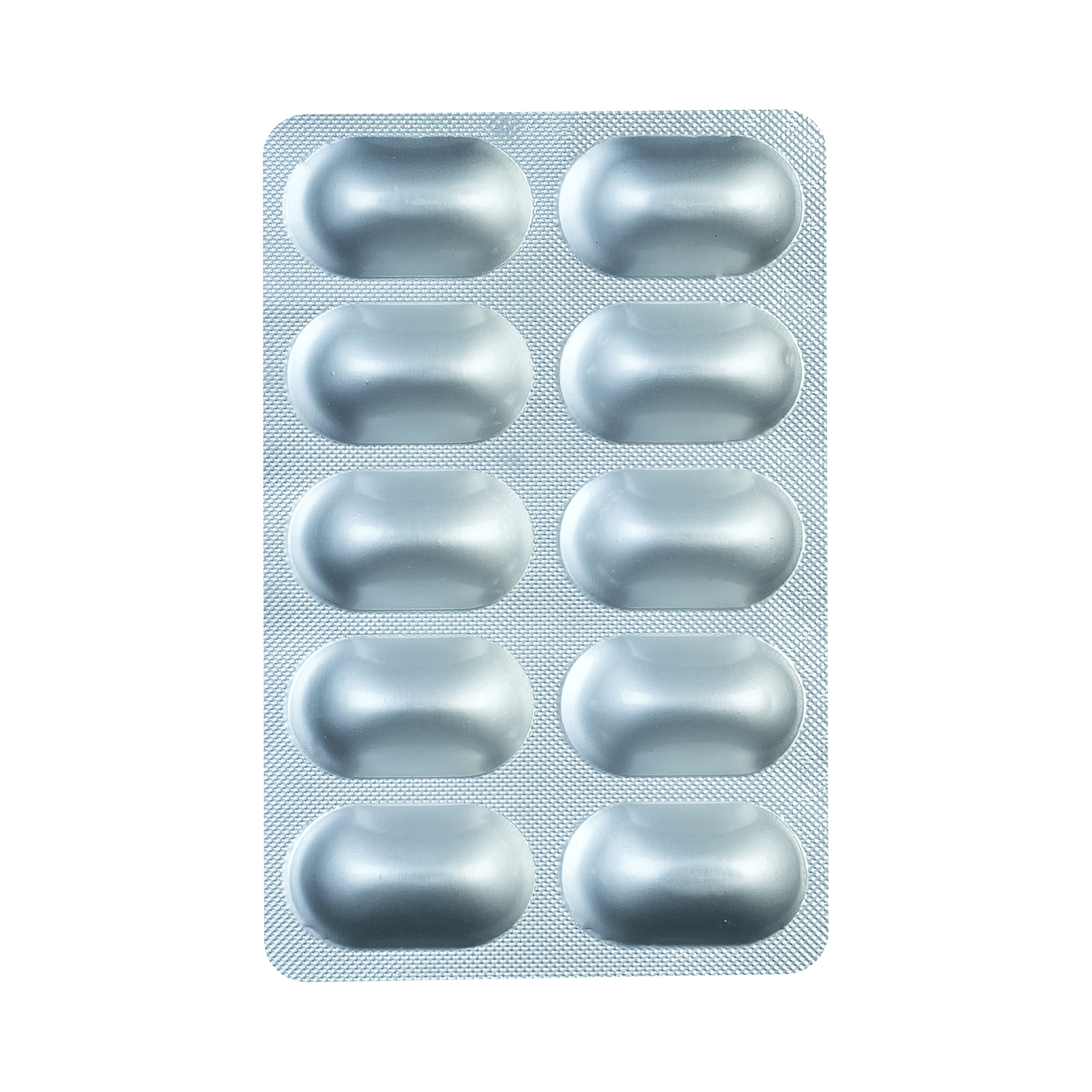
Naprosyn D 500 Tablet
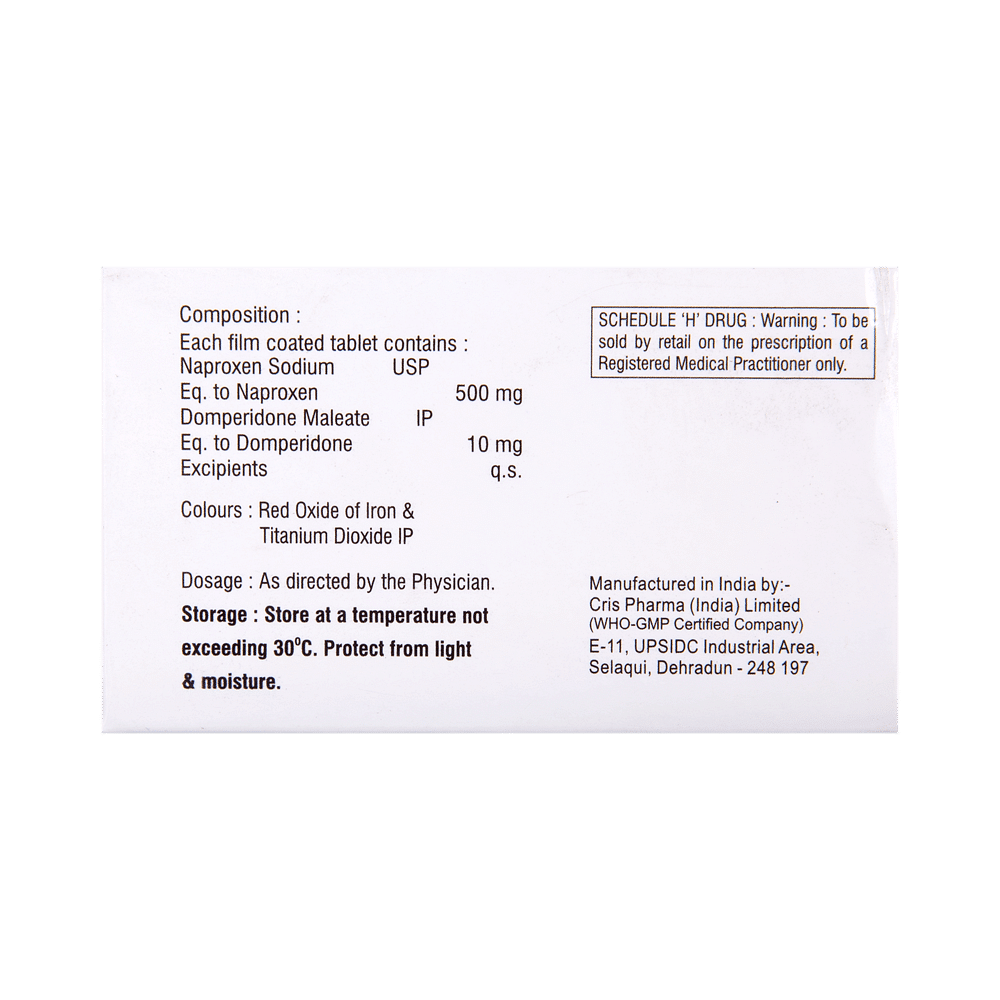
Comig 500 Tablet

Niprameg-D Tablet

Riqxen D 500mg/10mg Tablet

Napdro 500mg/10mg Tablet
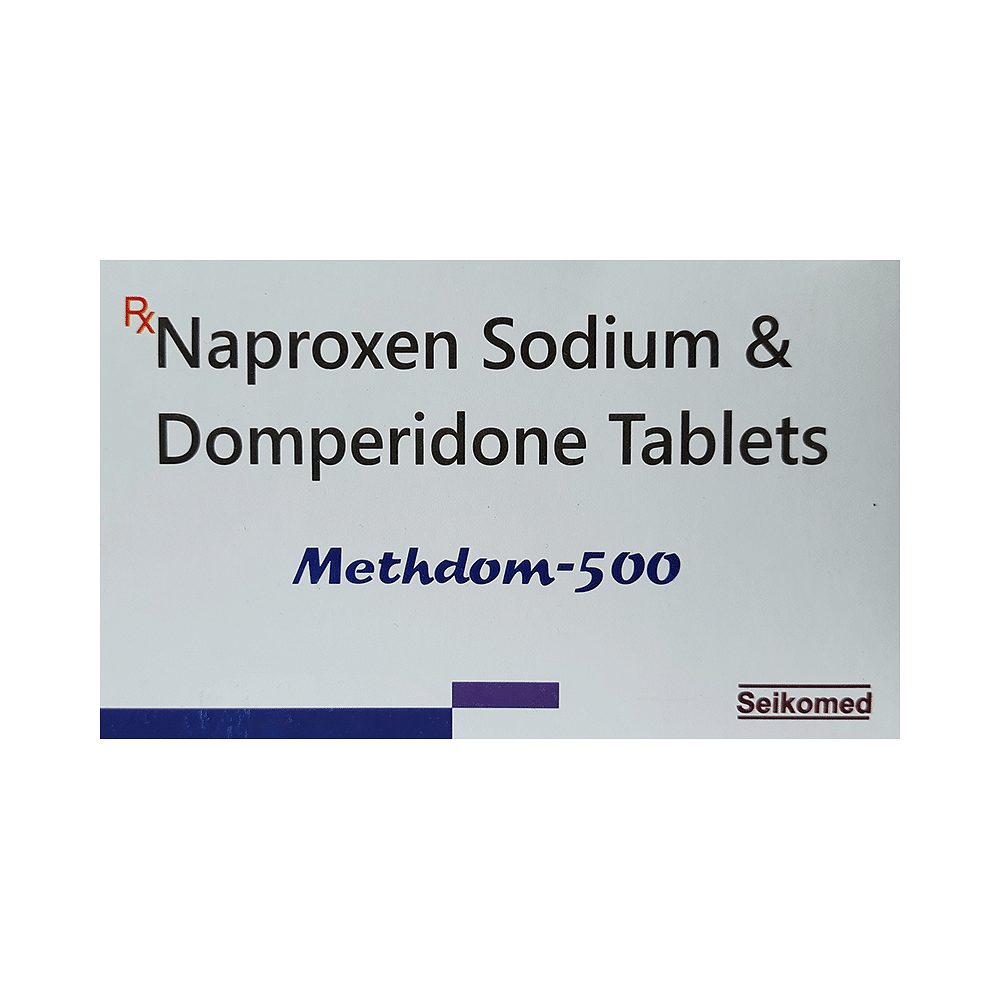
Methdom 500 Tablet

Naprosac D 500mg/10mg Tablet

Napolex D 500mg/10mg Tablet
Frequently asked questions
What is Napguard D 500mg/10mg Tablet?
Napguard D 500mg/10mg Tablet contains two active ingredients: Naproxen sodium and Domperidone. This combination provides relief from migraine symptoms, such as headache, nausea, and vomiting. Naproxen sodium is a non-steroidal anti-inflammatory drug (NSAID) that reduces the production of chemical messengers causing headaches. Domperidone acts as an antiemetic to increase the movement of the stomach and intestines, facilitating the smooth passage of food through the digestive tract. This helps relieve vomiting.
Can I stop taking Napguard D 500mg/10mg Tablet when my migraine symptoms are relieved?
No, discontinue this medication only under direct guidance from your doctor. Do not self-discontinue the medication.
Can the use of Napguard D 500mg/10mg Tablet cause diarrhea?
Yes, some people experience diarrhea while using this medication. If experiencing diarrhea, drink plenty of fluids and seek advice from your doctor if it persists. Do not consume any other medication without consulting a healthcare professional.
Are there any specific contraindications associated with the use of Napguard D 500mg/10mg Tablet?
This medication is not suitable for individuals with known allergies to any components or excipients of this medicine. It should also be avoided in patients with a history of peptic ulcers, active or recurrent stomach ulcers, bleeding from the stomach or upper digestive tract. Additionally, it's advisable to avoid use in those with pre-existing heart failure, high blood pressure, and kidney or liver disease.
Can the use of Napguard D 500mg/10mg Tablet cause damage to kidneys?
Yes, long-term use of this medication can potentially lead to kidney damage. Prostaglandins are chemical compounds produced by your body which protect your kidneys. Painkillers like Napguard decrease the level of prostaglandins in the body which increases the risk of kidney damage over time. It is recommended to avoid this medication if you have pre-existing kidney disease.
Can I take a higher than the recommended dose of Napguard D 500mg/10mg Tablet?
Exceeding the recommended dosage can increase the risk of side effects. If you're experiencing increased severity of migraine attacks that are not relieved by the standard dosage, contact your healthcare provider for a re-evaluation.
What are the recommended storage conditions for Napguard D 500mg/10mg Tablet?
Keep this medication in its original packaging, tightly closed. Store it at the temperature specified on the label or package. When finished with the medication, dispose of any unused portion properly. Ensure that it is not consumed by pets, children, and other individuals.


